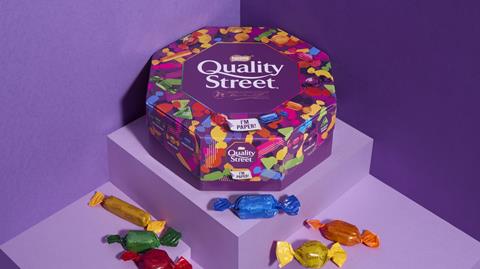
The nationals went big on Sainsbury’s 5% food sales rise, as consumers opt for cheaper dining alternatives to going out (The Times).
After cashing in £356m of pre-tax profit in the first half, the chain has warned food prices may still rise due to staff returning to the office and the knock-on effect of increased national insurance (The Guardian). The new budget measures are estimated to cost the retail giant £140m from April (Sky News).
While its food business is going “from strength to strength”, according to CEO Simon Roberts, its retailer Argos is lagging behind, having shed 5% sales due to poor demand and weaker online traffic (Financial Times).
Could Nestle’s Quality Street be guilty of shrinkflation? The consumer reaction to its latest changes suggest so. After replacing the plastic wrappers and introducing a paper tub, a few of the chocolates have now changed in shape and weight. The unwrapped Purple One, weighing 9.59g originally, now weighs 8.46g. And the unwrapped weight of the new-shaped Orange Crunch also reduced slightly, from 9.06g to 8.72g (The Guardian).
The baby formula market is in urgent need of a shake-up, according to the Competition and Markets Authority (CMA). The watchdog said struggling parents need to be presented with better messaging and clarity around different products and brands. The CMA is considering introducing a cap, though it is not recommending it, Sky News reports.
Grocery stores are selling premium wagyu beef for as low as £5 per steak to meet demand for “affordable luxury” from British consumers. Waitrose, Marks & Spencer and Aldi have already debuted their wagyu products, with Tesco to add several lines of the premium beef to its ’Finest’ range next year (Bloomberg).
The Bank of England has cut interest rates to 4.75%, a 0.25% drop from the previous 5% rate. Reducing rates for the second time this year, the Bank has warned further reductions will be “gradual” and it still expects inflation to increase after the Budget (BBC).
Health organisations are renewing calls to impose higher taxes on HFSS to reverse Britain’s obesity crisis. Experts and advocate groups including Diabetes UK and World Cancer Research Fund, believe higher levies would force food manufacturers to reformulate their products, and bring billions to the pockets of the Treasury to be reinvested in healthcare (The Guardian).
But the UK is not the only one to be affected: top food and beverage companies including Nestle, Pepsico and Unilever are reportedly selling low-income countries products that are less healthy than the equivalent they sell high-income countries. A damning report by non-profit group Access to Nutrition Initiative (ATNI) tested foods from over 30 multinational food companies across borders and found products sold to lower-income countries scored 1.8/5 on their health index, compared to 2.3/5 for higher-income countries (Reuters).







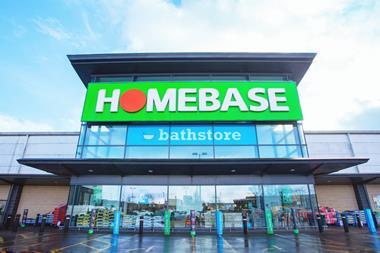
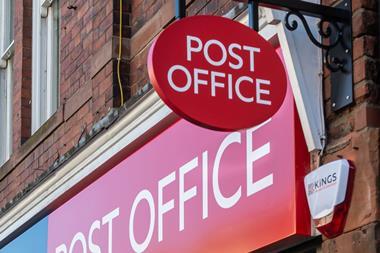
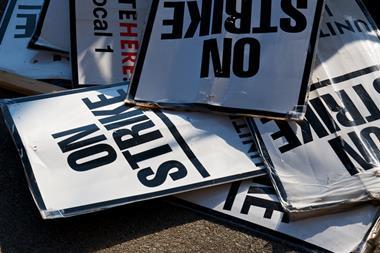
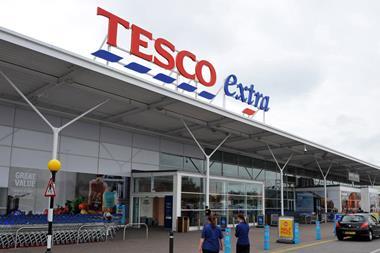
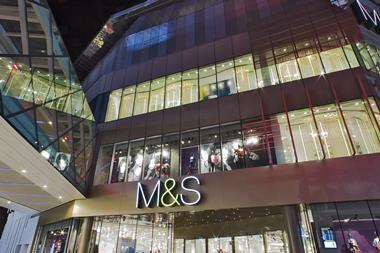

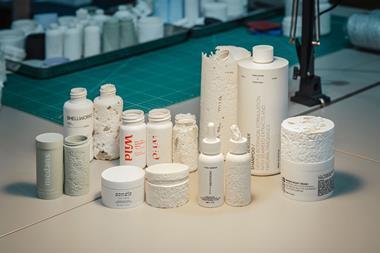


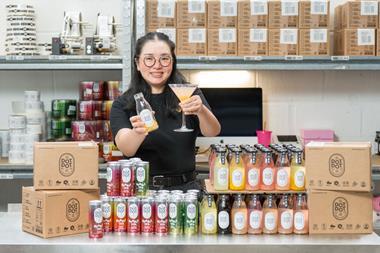


No comments yet